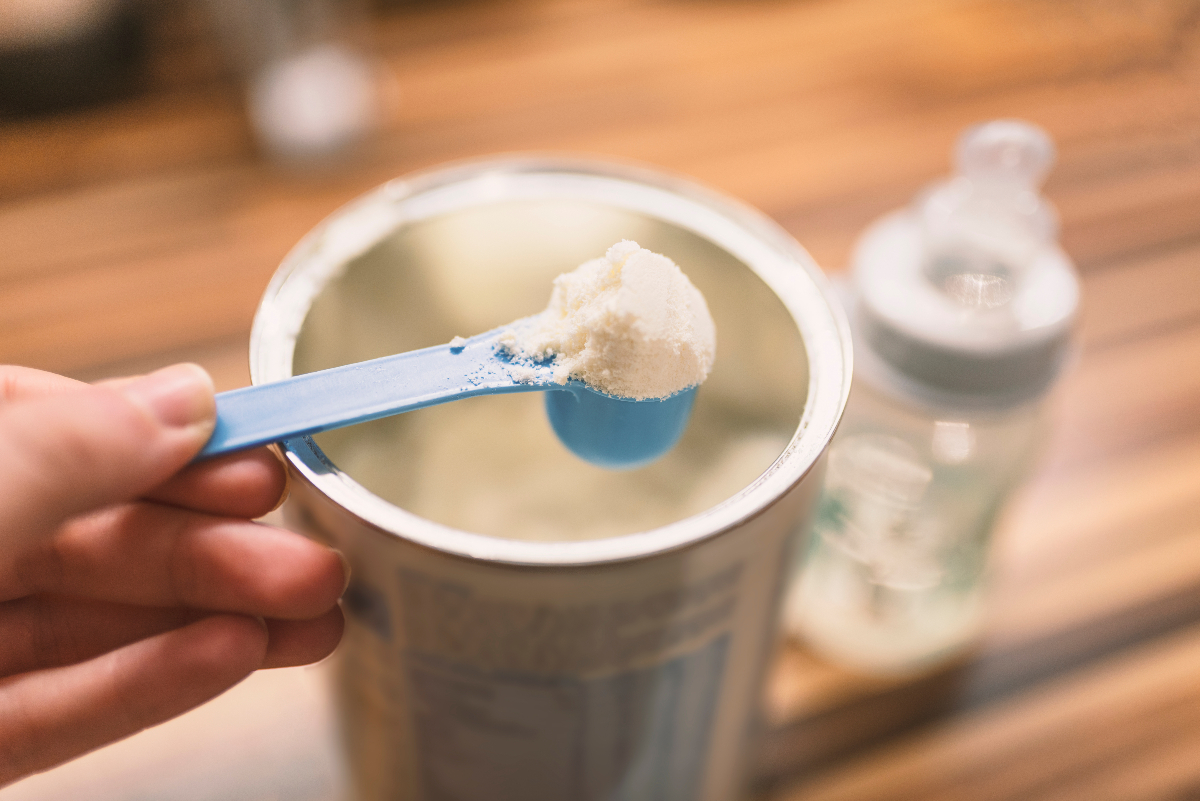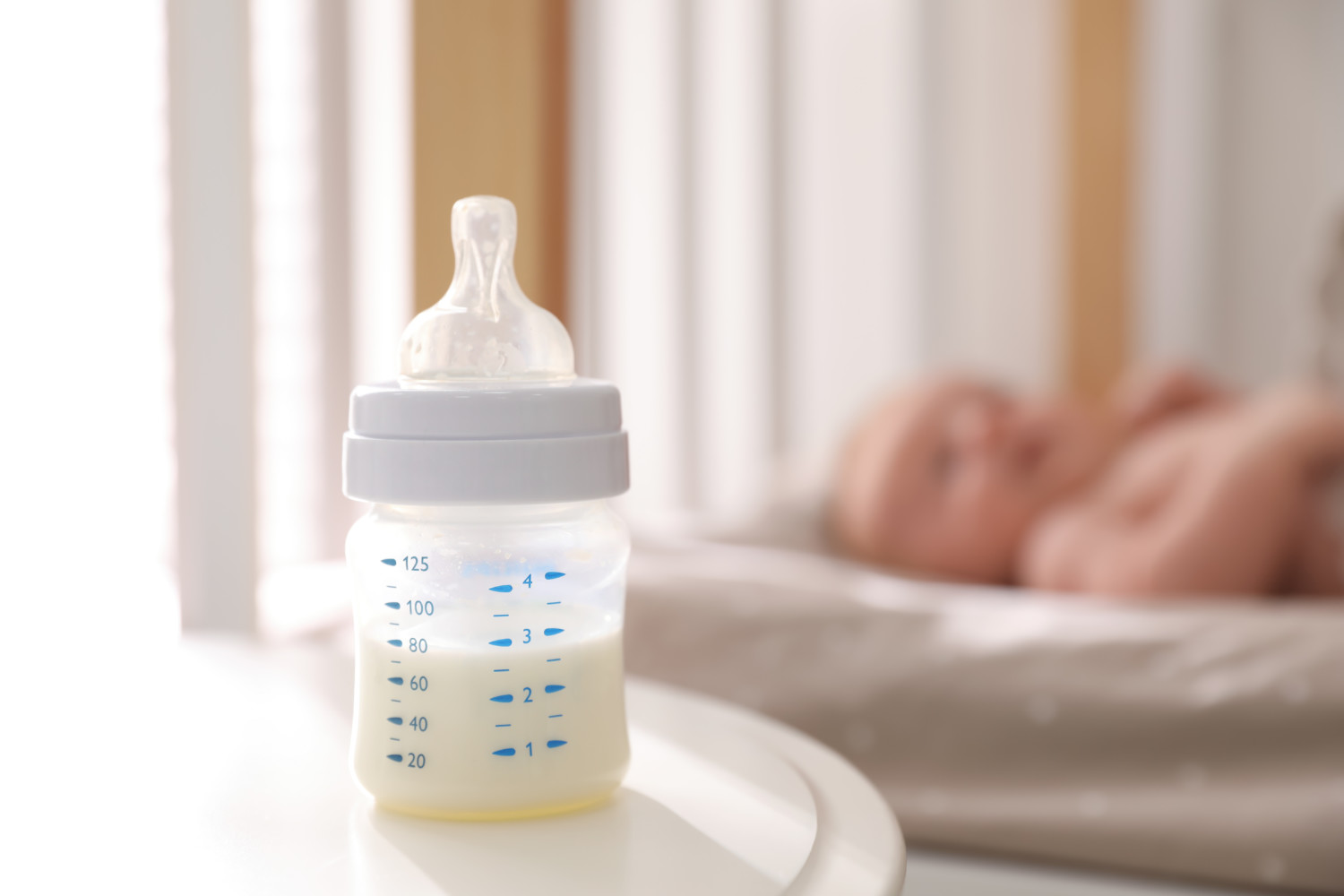The baby formula shortage in the U.S. continues to cause stress and anxiety for parents. Even though formula companies and the federal government are working together to find ways to ease the baby formula shortage, desperate parents need solutions sooner rather than later when faced with empty store shelves when looking to fill their babies’ stomachs.
Unfortunately, a justifiable fear of babies going hungry can push parents to make rash decisions regarding how to get their children through this shortage. And, while parents and caregivers have the best of intentions, some of these short-term decisions to bridge the formula supply gap can lead to long-term problems for children.

Experts around the country have shared some of the dangerous ways parents are trying to make do with less baby formula. We have rounded up some of the most common mistakes, why they are dangerous for babies, and alternative solutions to help families get through this crisis.
Do Not Dilute Baby Formula
It sounds like common sense to extend the life of baby formula (whether it’s powdered or ready-to-drink) by diluting it with water. After all, water is essential for life. However, pediatricians warn against stretching your formula supply by adding extra water because it upsets the delicate balance of liquid nutrition.
“It is really dangerous to dilute formula,” Dr. Alanna Levine, a pediatrician and the spokesperson American Academy of Pediatrics, told CBS News. “You impact the nutrition, so you are diluting the actual essential nutrition that the baby is getting and that could lead to growth and development problems. It’s this delicate balance of nutrition and minerals, the balance between protein and fat. If you throw that off, it could actually be dangerous to the baby.”
If you’re running low on formula, you might want to try the free formula exchange recently started by Massachusetts mom Keiko Zoll. Simply go to the exchange website, enter your information, and you could find free formula, even if your baby has special needs.

Do Not Try To Make Your Own Formula
Many parents make their own baby food when the time comes for their little ones to graduate to solid food. However, while it might be a good idea to purée fruits and vegetables to make homemade baby food, trying to mix your own formula is not a good idea, according to health experts.
The Food and Drug Administration advises against giving homemade baby formula to children. In a 2021 safety alert, the FDA highlighted a few of the reasons why it can be dangerous to use homemade infant formula.
“Homemade infant formula recipes have not been evaluated by the FDA and may lack nutrients vital to an infant’s growth,” the alert said. “The FDA has recently received adverse event reports of hospitalized infants suffering from hypocalcemia (low calcium) that had been fed homemade infant formula.”
In addition to these illnesses, the FDA alert also listed potential health risks from “severe nutritional imbalances to foodborne illnesses,” both of which can be life-threatening to an infant.

Instead of using homemade formula, health experts recommend using a different brand or variety if the one your baby usually drinks is not available. However, this is only applicable if your child does not have specific allergies or nutritional concerns. Also, if possible, make the transition slow and easy by mixing two different formulas together and gradually decreasing the amount of the original formula.
It’s also important to know that toddler formula is not a good substitute for baby formula, especially younger infants, according to the American Academy of Pediatrics.
Do Not Jump Right To Milk
It sounds logical for parents to switch babies from formula to milk, either animal or plant-based. However, the Centers for Disease Control and Prevention recommends parents wait until a child is at least 12 months old before introducing cow’s milk, raw milk and other milk alternatives, including soy, oat, rice, coconut, cashew and almond.
Again, these recommendations come from the fact that breast milk and formula have specific combinations of vitamins, minerals and other nutritional elements catered to the special dietary needs of infants.

Instead of introducing milk in a bottle, Dr. Levine told CBS News that parents with babies at least ages 4 to 6 months old could slowly start to introduce solid foods into the daily routine. These introductory foods including cereals and some puréed fruits or vegetables should only be a small part of a baby’s regular diet, though.
“When they first start eating these solid foods, they are only eating a small amount,” Levine said. “So, the majority of the nutrition that they are getting is still from formula and breast milk.”
This story originally appeared on Simplemost. Checkout Simplemost for additional stories.


